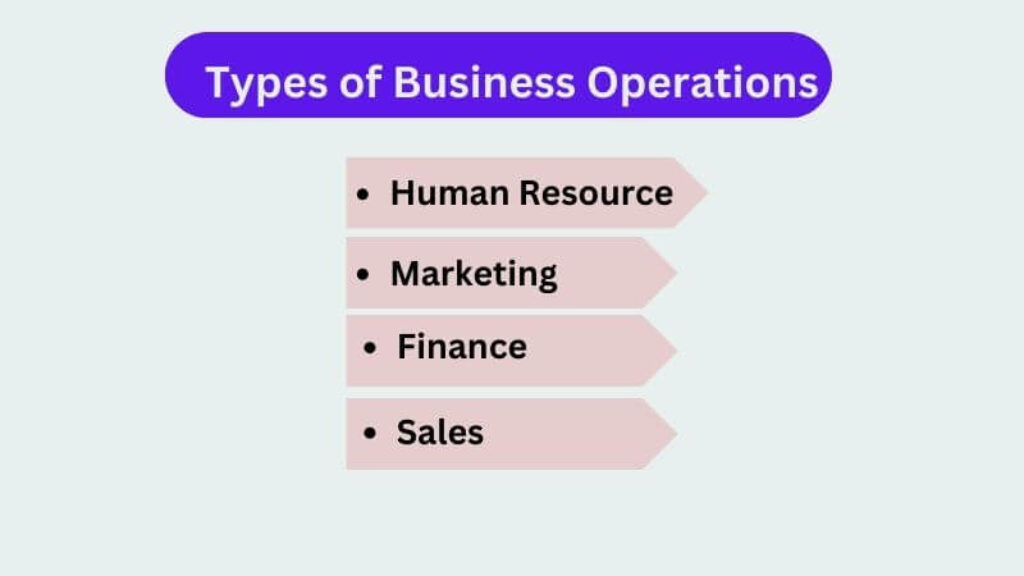Ops are the foundations of any business, be it retail, manufacturing, technology, or any other. But what exactly is the meaning of ops in business? What kind of role does it play for the industries? Why do businesses put so much emphasis on a great ops manager?
Your mind must be bombarded with these or many more such questions. That is why we are here.
In this blog, we will delve into the meaning of “ops” and its importance in the business world.
So, what are we waiting for? Let’s get started!
Ops Meaning in Business

In the present time, we are surrounded by abbreviations and acronyms to the extent that it has become challenging to find the exact meaning of a word. The shortened versions of ordinary words with multiple context meanings have increased the complexity, even for Google.
For example, if you search “ops” abbreviation without mentioning “in business,” you will see a long list of results, such as opinion, old pension scheme, or opposition.
But that should not be a surprise, right?
The true meaning of ops in business is operations. This is a crucial department of an organization and is solely responsible for all behind-the-scenes work. The operational period team or manager sets up meetings and ensures that a company has everything in place to run smoothly.
From acquiring raw materials to product design, quality control, marketing, and sales or human resources, there is a contribution from them everywhere.
Additionally, based on the industry, the requirements of business operations can vary incredibly, except for the following:
Hiring the right people
For a well-organized business operation, it is imperative that you have the right team with the right job as per their skills. This will result in getting the work done at a much faster pace, thus ensuring the maximum productivity of your company.
Building an efficient process
To have an efficient business model, it is imperative to start building uniform processes. For example, one of these processes includes giving work roadmaps to all the employees. This will guide them in staying on the same page and also in completing their milestones with little to no management involvement.
Right location
Having the right location is another crucial factor for succeeding in your business goal. Whether you are a manufacturer and produce items or a service provider, your employees would work best in an environment suitable for the task they have at hand.
Having the right set of tools
To ensure that your business operates smoothly, it is important that you have the right set of equipment to perform the tasks. Outdated desktops or poorly manufactured tools will have a significant impact on team efficiency.
Types of Business Operations

For a startup or a small business, there is no dedicated ops role assigned to one person. Both the company’s owner and the employees understand every minute detail about how the work flows. However, for enterprises or organizations, this is not the scenario. Depending on industry type and scale, a business’s operations typically fall into production, human resources, sales and marketing, and finance.
Let’s have a glimpse at each of them one by one.
Production
This is the main reason for starting a business. All organizations provide services or products for the good of the community, which they market in order to raise money to pay for their overhead.
As an example, the well-known tech business Apple, which gained notoriety for its efficient production processes, ensures the prompt release of its products throughout the world.
Human Resource
The term “this ops” refers to the workers, managers, employees, and other participants who provide their efforts and time to ensure that daily operations operate successfully.
For example, companies such as Salesforce are praised for their HR departments that put employee well-being first.
Marketing
Today, digital marketing plays a significant role for brands and businesses. Every organization needs to engage in marketing endeavors because they support revenue generation, progress, and territorial expansion. In order to generate income and boost profit, the marketing approach helps inform customers about the goods and services offered by the business.
For example, Coca-Cola’s marketing department has earned iconic status for creating campaigns that connect with a wide range of target consumers.
Sales
The sales operations involve the analysis of real-time data, streamlining the sales processes, and automating the tasks so that everyone stays on the same page. Based on the final report, the sales operations build sales strategies to boost the sales process. The higher level is even responsible for training the new sales reps, including the follow-ups.
For example, American retail corporation Walmart is known for its best sales operations.
Finance
The finance operations help in the efficient management of monetary assets and save money for the business’ future endeavors. By taking this step, the organization can invest its earnings in departments that will yield rewards that can be reinvested in potential growth.
For example, the goal of Google’s finance operations is to promote longevity and creativity.
Examples of Business Operations in Different Sectors

Businesses operate distinctly in different sectors, and their organizational structures are determined by the demands of the respective sectors. Gaining expertise in a certain industry’s operations can aid in the growth of the company.
Below is a breakdown of how various sectors’ businesses operate:
For retail business
Maintaining inventory of items that consumers want and are happy to shell out cash for is one of a retail company’s primary objectives. This implies that in order to minimize dead stock (goods that a business carries but is not in great consumer demand) and know what is in inventory at certain points, the company needs to keep an effective inventory system.
So, in order to achieve optimum profits, the company should supply high-demand items in which consumers are interested and willing to pay. Moreover, in order to avoid stock-outs, the company should also bargain amicable credit conditions with vendors to enable them to obtain the necessary goods on credit.
For service business
An organization dealing in the service sector can be classified into two business segments: its front end and back end. In order to avoid complacency on one end, which could impede the accomplishment of the company’s goals, executives must make certain both divisions are operating effectively.
In the front end, the company should prioritize simplifying providing services so as to improve client fulfillment. There should be a mechanism for getting consumer comments and grievances so that it may learn about what they want and how to offer better services.
On the back end, each department’s administration should hire qualified candidates. For instance, in order to keep final costs from going beyond client finances, the business should assign qualified and skilled employees to develop projections for client work.
For manufacturing business
Manufacturing businesses are in a position of transforming raw materials into finished goods that are marketed to end-users. Securing top-notch supplies from reliable vendors is one way an industrial business can increase efficiency. Another way is to investigate the storage, processing, and delivery of raw materials to customers for consumable and perishable goods.
Furthermore, in order to reduce turnaround times and save time during production and shipment, the corporation can remove blockages. If the business is having trouble with transportation, it may hire a third-party transportation company and focus on its strong points in other aspects of its company.
Check out the must have trucking business checklist, if you are in a transportation business.
For technology business
If a technology business is to optimize its operations, the correct personnel must be hired and given the necessary training to carry out the responsibilities allocated to them. This implies that the business needs to implement a hiring policy that enables them to select the most qualified applicants for the position. Additionally, the organization ought to have an in-house coaching and mentoring program in which new hires collaborate closely with their superiors to enhance their talents.
Another method to boost productivity is working together with the various tools the business utilizes, such as applications, sites, and platforms. The managers should keep a close eye on all within and external processes to identify any hiccups and take prompt action.
How to optimize the business ops?

There are a couple of ways in which you can optimize your business operations and boost productivity. Following are they:
Monitoring performance
A company should develop practical and useful metrics for tracking its business objectives. The process of creating goals is the first step in the performance measurement approach. The management needs to establish clear, attainable goals.
For instance, achieving 25–30% growth in revenues is a more achievable target than aiming to raise revenue in the upcoming fiscal term. The business should then put in place a measurement system to assess how well it is performing in comparison to the predetermined goals.
Stay current with emerging trends
To obtain notions on how to outperform the competition, a business should keep up with developments in the field. Novel innovations, evolving state and federal regulations, or shifts in the regional economy are examples of trends.
Being aware of current trends and shifts in the business world may help the organization identify innovative solutions that increase productivity, save expenses, or ensure compliance with ever-changing rules.
Streamline tasks
And last but not least, adapt to changes in the sector to boost output. The top brass should always be searching for new equipment, applications, and devices that facilitate and enhance important activities.
For instance, if the company handles its inventory manually, executives might invest in reliable inventory management software, which automates the majority of the work and reduces expenses and turnaround time.
Final Words
Ops is the foundational pillar of any organization. It helps businesses streamline their workflows, monitor outcomes, and boost overall productivity.
This department is responsible for everything from acquiring materials to manufacturing products, quality assurance, building sales and marketing strategies, and having smooth communication between B2B and B2C.
We hope that with this blog, you will have clarity on what ops means in business. Also, how it plays a distinct role between different industries and business sizes.
Having said that, we are taking a leave now.
In case you have further doubts, feel free to ask in the comments section below. We would be glad to help you.











